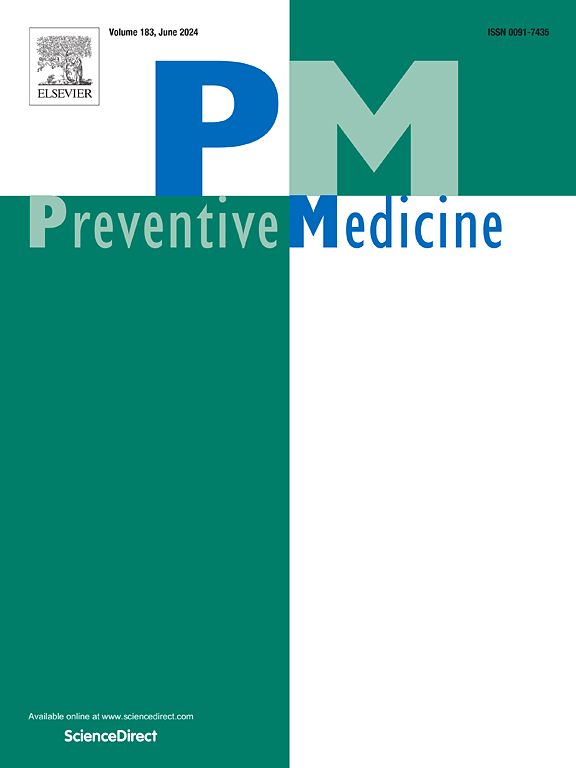Fish oil supplementation, genetic susceptibility and risk of new-onset hypertension
IF 4.3
2区 医学
Q1 MEDICINE, GENERAL & INTERNAL
引用次数: 0
Abstract
Objectives
The risk of new-onset hypertension is influenced by habitual fish oil supplementation, but whether the association is modified by genetic predisposition is unknown.
Methods
A total of 213,604 participants without hypertension were identified at baseline from the UK Biobank between 2006 and 2010. The weighted polygenetic risk score (PRS) comprising 118 identified single-nucleotide polymorphisms (SNPs) was used to quantify genetic susceptibility. Cox regression models were applied to determine the association between fish oil supplementation, PRS, and hypertension and evaluate the effect modification of genetic susceptibility.
Results
During a median follow-up of 13.8 years, 18,498 new-onset hypertension cases were identified. Approximately 30.6 % (65,452) of participants were habitual fish oil users. The hazard ratio (HR) of habitual fish oil users for hypertension was 0.94 (95 % confidence interval [CI], 0.91–0.98). Fish oil nonusers with a high genetic risk had an increased risk of hypertension (HR, 1.52; 95 % CI, 1.41–1.64) compared to fish oil users with a low genetic risk. In addition, an interaction on the additive scale between the fish oil use and intermediate or high levels of genetic susceptibility was observed. The interactive effects accounted for approximately 7 % and 22 % of the risk of developing hypertension, respectively.
Conclusions
This cohort study indicates regular fish oil supplementation could be beneficial in preventing hypertension, particularly among individuals with intermediate or high genetic susceptibility on an additive scale.
补充鱼油、遗传易感性和新发高血压的风险。
目的:新发高血压的风险受习惯性补充鱼油的影响,但遗传易感性是否会改变这种关联尚不清楚:习惯性补充鱼油会影响新发高血压的风险,但这种关联是否会因遗传易感性而改变尚不清楚:方法:2006 年至 2010 年间,从英国生物库(UK Biobank)中确定了 213 604 名无高血压的基线参与者。由 118 个已识别的单核苷酸多态性(SNPs)组成的加权多基因风险评分(PRS)用于量化遗传易感性。采用 Cox 回归模型确定鱼油补充、PRS 和高血压之间的关系,并评估遗传易感性的影响:在中位 13.8 年的随访期间,共发现 18,498 例新发高血压病例。约 30.6% 的参与者(65 452 人)习惯使用鱼油。惯用鱼油者患高血压的危险比(HR)为 0.94(95 % 置信区间 [CI],0.91-0.98)。与遗传风险低的鱼油使用者相比,遗传风险高的非鱼油使用者患高血压的风险更高(HR,1.52;95 % CI,1.41-1.64)。此外,还观察到使用鱼油与中度或高度遗传易感性之间的交互作用。交互效应分别占高血压发病风险的约 7% 和 22%:这项队列研究表明,定期补充鱼油有利于预防高血压,尤其是在中度或高度遗传易感性个体中。
本文章由计算机程序翻译,如有差异,请以英文原文为准。
求助全文
约1分钟内获得全文
求助全文
来源期刊

Preventive medicine
医学-公共卫生、环境卫生与职业卫生
CiteScore
7.70
自引率
3.90%
发文量
0
审稿时长
42 days
期刊介绍:
Founded in 1972 by Ernst Wynder, Preventive Medicine is an international scholarly journal that provides prompt publication of original articles on the science and practice of disease prevention, health promotion, and public health policymaking. Preventive Medicine aims to reward innovation. It will favor insightful observational studies, thoughtful explorations of health data, unsuspected new angles for existing hypotheses, robust randomized controlled trials, and impartial systematic reviews. Preventive Medicine''s ultimate goal is to publish research that will have an impact on the work of practitioners of disease prevention and health promotion, as well as of related disciplines.
 求助内容:
求助内容: 应助结果提醒方式:
应助结果提醒方式:


